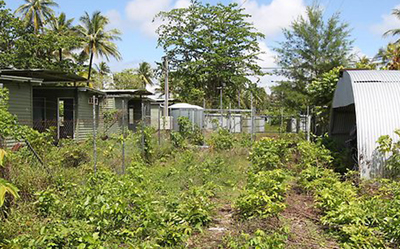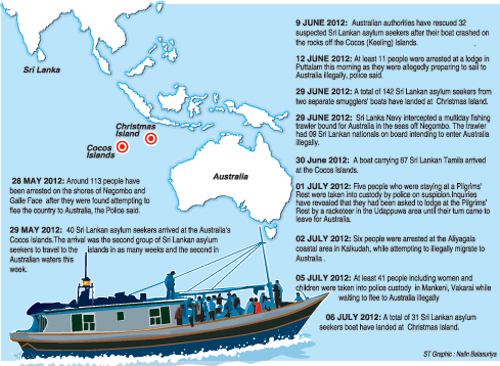News
Offshore detention centres will not deter asylum-seekers, says Navy spokesman
The Sri Lanka Navy says the Australian government’s proposal to set up offshore detention centres for refugees arriving by boat would alone not deter people from illegally trying to enter the country.

Detention centres on Manus Island
On Thursday, the Australian Parliament passed an amendment to allow the re-opening of offshore detention centres for migrants and asylum-seekers arriving in Australia by sea. The centres are built on Manus Island, the largest island in Papua New Guinea.
Navy spokesperson Kosala Warnakulasuriya told the Sunday Times that the Sri Lanka Navy did not have the resources to check the flow of people attempting to sail to Australia. He said the Australian government should send back detained Sri Lankan refugees and do more to discourage people from attempting to illegally land on Australian shores.
“Opening up offshore detention centres in Papua New Guinea alone will not end the issue of human trafficking,” the Navy officer said. “The refugees believe they will have better living conditions in Papua New Guinea than in their villages in the North and East and other parts of Sri Lanka.”
According to reports, the proposed offshore centres in Manus Island are not liveable in their present state. The shelters are run-down and termite-infested and surrounded by overgrown bush land. Furthermore, the Australian Government will have to fork out a hefty A$1.8 billion to house 2,100 people over a period of five years, the report pointed out. Meanwhile, a senior United Nations official warned that re-opening offshore detention centres for migrants and asylum-seekers arriving in Australia by sea could result in human rights violations.
UN High Commissioner for Human Rights Navi Pillay welcomed the Australian government’s efforts to institute more comprehensive cooperation on migration. UNHCHR spokesperson Xabier Celaya noted. There are concerns, however, that the offshore detention centres would lead to indefinite detention, which could develop into a human rights issue.
comments powered by Disqus























